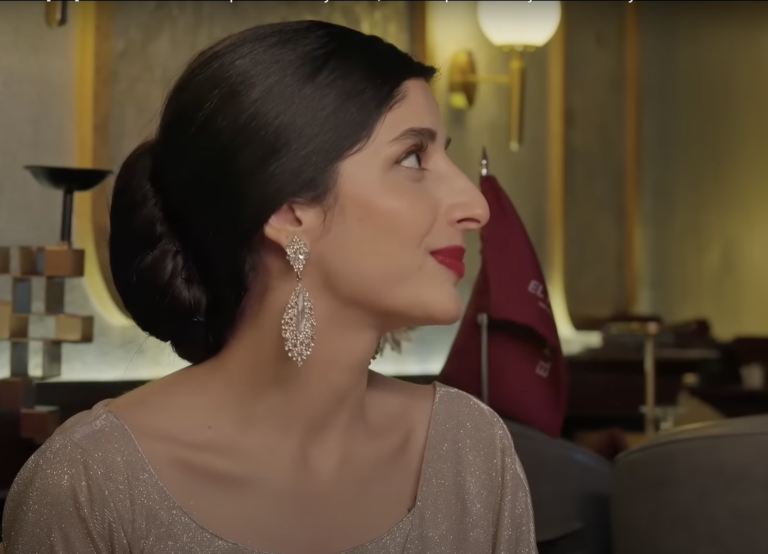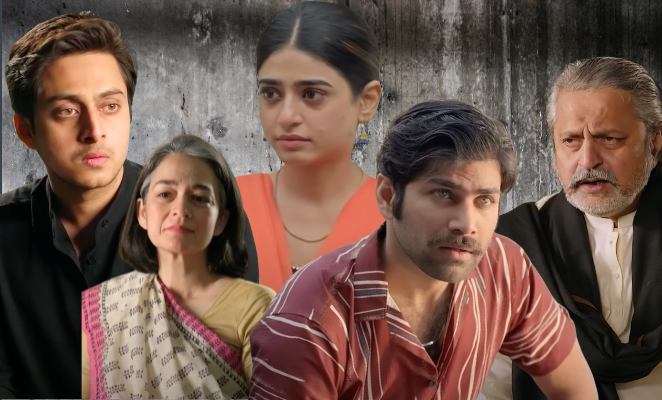Can I just say how impressed I am with Bilqees Kaur? After the fantastic opening, I, like many others, had wondered if the first episode had flattered to deceive; but I am happy to report that I have been proven wrong. Adnan Ahmed and Faiza Iftikhar have navigated carefully through choppy waters, particularly where sensitive issues like religion, conversion, and day to day accommodations of religious and cultural differences are concerned. Rather than pointing fingers and issuing judgments, we are presented with a very sensitively drawn picture of how a strong woman like Bilqees Kaur lives life on her own terms.
Even as Bilqees is a devout Muslim, she refuses to erase her past as a Sikh. Her everyday life is a reflection of how her present continues to be shaped by her past. Instead of hiding her mixed religious practices and apologizing for them, she unashamedly continues to incorporate these in her daily life. For her, pragmatic considerations are more important than religious differences; that is why she has chosen her Sikh niece Pammi as a match for Sultan – because she would be docile and bring in a huge dowry. Paradoxically, while she highlights the reasons for Pammi’s suitability, she also warns Sultan against following his father’s footsteps, becoming an unambitious wimp like him, dependent on his wife’s earnings. She makes similar allusions when she is scolding her elder son Inayat for his no-good ways, and when talking to her son–in–law when he asks for a US visa. With these casually thrown in lines, we are given an important insight in to Bilqees’ character – the men in the family are too laid back, always looking for an easy way out, and perhaps this is why she’s had to step up and don the mantle of an iron-fisted matriarch. Again, very cleverly handled by the talented director/writer duo!
Though we understand Bilqees’ fears and motivations, it is nonetheless hard to empathize; particularly as we see how her iron-control is affecting her family and constricting her children’s lives. Inayat and Peeno have no personal life, Anjuman is planning to elope with her boyfriend, and Sultan is highly frustrated as he is reduced to begging his mother for his tuition fees. Like his sister, he too sees marriage as a way of escaping the unpleasant family dynamics. Unfortunately, his plans are thwarted as his girlfriend rejects his proposal, setting up Syra Yousuf’s entry into the picture – nicely done!
Overall this was an action-packed episode. Faiza’s complex but nuanced story was translated smoothly on to the screen by director Adnan Ahmed. Shehzad Kashmiri’s cinematography was brilliant as usual. Amongst the actors, all fit their parts perfectly. Apart from Bushra Ansari, who is absolutely top-notch here, it is very good to see a less made-up Sadiya Imam tackle a meaty role, and the same goes for Kashif Mahmood as he takes to his character with great relish. Ahsan Khan and Maheen Rizvi are both looking good as the rebellious siblings. Here, I would like to note how refreshing it is to see new faces. The actors who play Liz and Anjuman’s boyfriend are believable in their roles as overseas Pakistanis. The actor playing Ahsan’s friend is very good here, and so different from his role in Kuch Pyar ka Pagalpan. We should see more of him.
Finally, a word of praise for the absolutely superb OST – after Humsafar, this is yet another serial where the song captures the ethos of the story just perfectly. Drawing inspiration from Bulley Shah’s inimitable poetry, Sabir Zafar’s meaningful lyrics are beautifully composed by Waqar Ali and exquisitely sung by Fariha Anwar – a music lover’s delight!
Looking forward to more!
Written by SZ~ sz.reviews.dp@gmail.com
Follow me on Twitter: SZ_DramaPakistani (@sz_dp)









 Watch our full review on Yo
Watch our full review on Yo





